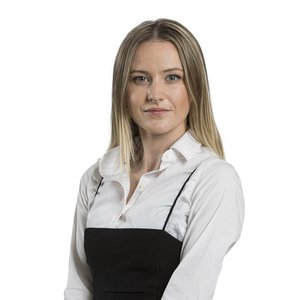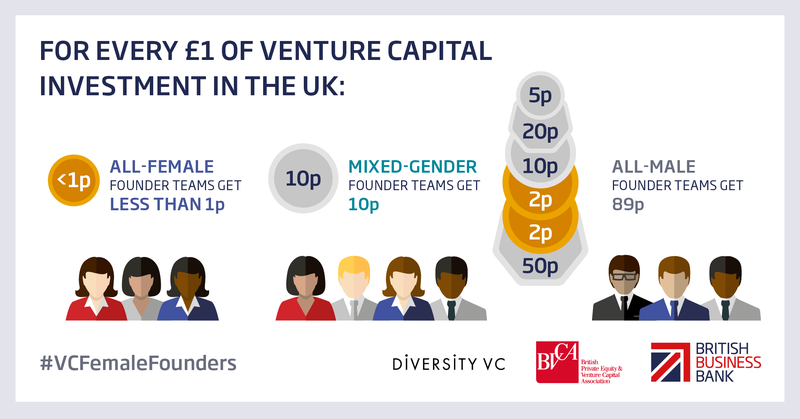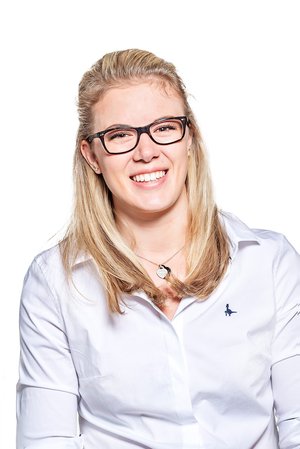Event summary: Women in Tech
A recent Women in Tech survey [1] revealed that half of the women surveyed had experienced gender discrimination or gender bias in the workplace. Over two-thirds of women from both large organisations and small and medium size enterprises reported a gender imbalance in their workplace. Technology, in all its forms is pervasive in all our lives, and in every professional sphere. So it matters that women are well-represented and well-equipped to participate in these increasingly important industries and fields of technical expertise. We began with each of the speakers summarising key milestones/decision points in their careers.

After reading Philosophy and Theology, Maddie Forman (2015) joined Diageo on their commercial graduate scheme. With six roles in five years, spanning strategic accounts to sales team management, it sounded like a mini-MBA before undertaking the real thing at London Business School. Alongside the demands of the MBA, Maddie co-founded fashion tech company Vestico. As Chief Commercial Officer, she's developing Vestico's software-as-a-service, or SaaS, business model and is a member of the Walpole Future Leaders Programme to identify and mentor the next-generation of luxury in the UK. Even at this early stage in the afternoon, Maddie's opening remarks touched on what would be a recurring theme: the challenges of fundraising for female founders, even with the reassurance of the LBS brand and network.

Oriel Petry (1995, Modern Languages) shared some key statistics as context for Maddie's personal story: in the UK all-female founder teams get less than 1% of funding [2]. Accompanied by one of her two sons, Oriel shared an overview of her twenty years as a British senior civil servant and diplomat across Whitehall and the European Commission, latterly as Director Technology and Advanced Manufacturing at the Department for International Trade, before her recent move to Airbus as Senior Vice President of Corporate Affairs where she leads external engagement and strategy. Oriel is also an active mentor.


Sarah Craddock graduated in 2016 with a degree in Chemistry, before starting her technology career at a small consultancy, RiverSafe, and then moving to Tesco Technology on their monitoring and data analytics platform. Now Sarah is a Senior Software Engineer at Microsoft in the Customer Engineering team, working with Microsoft's largest and most innovative cloud customers to get their products working seamlessly on Azure, Microsoft's cloud. Sarah is passionate about helping to build diverse teams and since joining her current team as the only women, the team has expanded and is now 50% female.
Our early discussions on the theme of what panellists wished they had known earlier in their career drew some wry observations from Sarah about proximal role models. Sarah's mother, who was in the audience, has had a long and rewarding career in IT. We touched on the transferable skills that postgraduates are cultivating in their research. There was a sense of the draw of innovation and a spirit of open enquiry or curiosity. Those of us that are older shared an enthusiasm for careers and realms of knowledge that were unimaginable when we were in College that we have discovered in later-life.
As only 19% of the people working in tech in the UK are female, it was inevitable that the discussion moved to the barriers and opportunities that this presents. There are challenges, particularly around fundraising for female entrepreneurs. However, overall the experiences of the panellists has been positive. Several remarked that as a woman, the enhanced visibility can be positive. Brining "softer" skills or "EQ" can help build trusted relationships with colleagues, as can the ability to empathise with customers. Several women spoke of genuinely supportive colleagues, encouraging line managers and inspirational female CEOs driving inclusive cultures, as well as, the responsibility to personally role model more progressive ways of working. Diverse teams and progressive workplace cultures also attract talent: 88% of women would be drawn towards an organisation that speaks openly about diversity.
The relatively small group allowed for candid discussion of how to deal with difficult situations in the workplace, particularly when there is an imbalance of age, power, or experience. We kept coming back to the power of humour to disarm and discernment over which battles to fight. A couple of early-stage career alumnae specifically asked for advice on how to deal with casual remarks about their age that felt belittling. In response, another woman shared a story from her career: a friendly "All right, girls?" disappeared not long after a similarly friendly "All right, boys?". Without confrontation, a different perspective was made apparent. Sometimes a shift in perspective can raise awareness of unconscious habits and patterns.
With these personal and positive stories, we were all left with a sense of opportunity for the future of women in technology, and enthusiasm encouragement to take our part in shaping it.
Many alumni/events are structured around matriculation year or subject and this was an experiment with a thematic meet-up to build inter and intra-generational connections between women in a similar professional field, or with an interest in joining that field. The intimate and informal nature allowed for some candid discussions and personal connections that are already flourishing.
If you would like to run an event with women in your field, do contact women@sjc.ox.ac.uk. We'd love to hear from you.
[1] https://www.womenintech.co.uk/women-technology-survey-2019?utm_source=WIT&utm_medium=Button&utm_campaign=didyouknow,WITHP
[2] https://www.british-business-bank.co.uk/uk-vc-female-founders-report/
Check for updates on the Women's Network Facebook Page